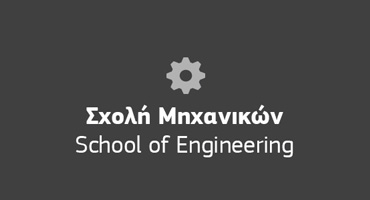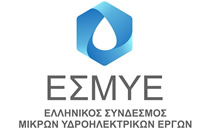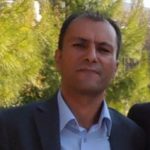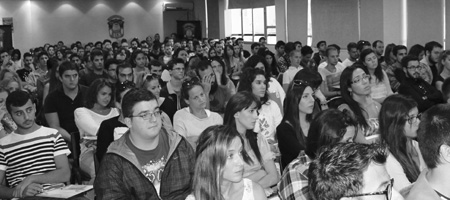





MSc Renewable Energy Engineering
-
The only MSc in Greece in Renewable Energy Systems (RES) and Hydrogen Technologies.
-
Focuses on the Greek RES industry needs.
-
Develops highly sought-after knowhow and skills.
-
Recognised degree by a TOP26 UK University.

Renewable Energy is the Future
Following the increased interest in developing and using renewable and sustainable energy sources, Mediterranean College offers a postgraduate degree in Renewable Energy Systems. Check out students’ testimonials and learn more about the programme.
We.Need.Change.
Supported by
 |
 |
 |
Course Information
From solar and wind energy, to geothermal and small hydropower, and from bioenergy to fuel cells and hydrogen technologies, everywhere in the world around us there is abundantly available energy that is renewable and, practically, inexhaustible. The exploitation of this renewable energy potential is not only our obligation to the environment and the planet but also a great scientific, technological, and economic challenge now and in the immediate future. The market for renewable energy systems and technologies is growing rapidly around the world.
In Greece, the decade 2020 – 2030 is expected to be the decade of RES, as the National Plan for Energy and Climate, to which the country is committed, will mobilize great private and public investments to replace conventional power stations with a new power generation mix.
The MSc Renewable Energy Engineering provides you with the necessary knowledge and skills to join the world of RES and prepare your professional career in this cutting-edge field. If you see your professional future in the modern energy sector, then this program is for you.
The course is designed in collaboration with the University of Derby, TOP26 UK University (Guardian University Guide 2020). Its presence in the heart of the English industry and its connection with giant companies such as Toyota, Rolls Royce, Bombardier, and JCB, has established it as a university of high innovation, cutting-edge research, and degree programs that respond to current market needs.
What you will study
This programme helps students acquire the knowledge and develop competencies and skills in the analysis, design, and implementation of renewable energy systems and hydrogen technologies. Students familiarize themselves with basic concepts and principles, as well as advanced modeling, design, and development of photovoltaic systems, wind power stations, biomass utilization, small hydropower plants, geothermal energy, etc.
At the same time, it helps them understand the challenges of RES integration in the wider power generation system and introduces them to modern energy fields, such as smart electricity grids and energy storage systems.
The curriculum offers training in the fundamentals of energy economics, mainly in the form of methods and tools for evaluating small-scale energy investments. Also, students can specialize in areas such as hydrogen technologies, energy conservation and rational use of energy (mainly) in the building stock and the development and maintenance of RES units.
The programme finally allows students to conduct research work, under the supervision of experienced faculty members, which can lead to publication in international conferences or academic journals or be used by partner companies in the design or construction of real projects.
Why choose this course
We accept applications throughout the year until all available positions are filled. As this is a postgraduate programme of a high demand with a maximum number of participants, we encourage you to submit your application early.
We offer multiple tuition payment plans and scholarships based on academic achievement, as well as professional and socioeconomic criteria.
Our master’s degrees are chosen by dozens of companies every year for the training of their executives, as we offer special tuition discounts to partner companies or for the enrollment of multiple individuals from the same company.
Contact us today and find out about the curriculum and tuition opportunities. Our Admissions Office advisors will give you all the necessary information about the programme as well as the application and registration process.
Admission Requirements
The MSc Renewable Energy Engineering is ideal for you if you hold an undergraduate degree in any Engineering discipline or any related field with strong technical content. If you do not have the formal qualifications but have proven technical experience as a professional, we encourage you to apply to the programme.
The required level of English corresponds to IELTS 6.5 (B2 +) or equivalent. If you do not have a language proficiency certificate, you will be taking the College English Language Test.
You will be asked to submit a CV, letters of recommendation from employers or teachers and you will be invited to an academic interview with the Programme Leader.
Courses
On successful completion of this module the students will know the basic concepts and principles of thermodynamics and the thermodynamic cycles connected to electric power generation. They will be able to solve problems of heat transfer in regular geometries subjected to different types of boundary conditions, understand, model, and use analytical and numerical techniques for solving heat conduction problems. Students will also review fluid dynamics and the Navier-Stokes equations; boundary layer; similitude and dimensional analysis. Energy markets, over the last several decades, have become some of the most dynamic markets of the world economy, as they experienced a shift from heavy regulation to market-driven incentives. Investments in the energy system are evaluated with the tools and models of financial theory. This module acquaints students with some of the widely used methods of energy investment appraisal, develops step-by-step tools for comparative evaluation of alternative energy plans based on their financial data and analyzes their sensitivity to individual evaluation parameters. Specific examples are used (in the form of Excel spreadsheets) for the evaluation of RES energy plans. Solar Photovoltaic (PV) systems convert sunlight to electricity. The module will cover the areas of solar radiation, solar system components and their functions, dimensioning of solar cell systems, solar thermal and hybrid systems, grid aspects of large-scale deployment of solar cells. Specific topics to be covered include types of solar power plants, site selection and shadow analysis, selection of PV technology, PV module sizing, connection of PV modules, design of plant array layout, solar power plant substation design, etc. The module will also address the conversion of Biomass to energy through various processes, including direct combustion, thermochemical conversion (pyrolysis, gasification) to produce solid, gaseous, and liquid fuels, and biological conversion. Geothermal energy principles and technologies for power production (geothermal power plants), and direct uses like district heating, geothermal heat pumps, greenhouses, and other applications will also be presented. Wind or Aeolic energy is one of the oldest energy sources exploited by humans. The technology of extracting energy from the wind has evolved appreciably over the recent past. This module provides a thorough overview of the topics which are fundamental to understanding the conversion of wind energy to electricity and its use. These topics span a wide range, from meteorology to many fields of engineering, such as: wind resource and how it relates to energy production, aerodynamic principles, electrical aspects of wind energy conversion, wind turbine materials and components, wind system controls, integration into electrical systems both large and small. The module also examines electricity generation from small-scale hydroelectric projects (typically from 500KW to 2.5-5MW), which in Greece and internationally have great power generation potential, mainly at the local level. "Run-of-the-river" projects, which, unlike large-scale hydroelectric projects, do not require large dams and pump storage are examined. The module introduces the essential concepts of hydrology for hydropower and presents the fundamentals of project planning, site selection (hydropower potential assessment), and SHPP design (civil, hydraulic, and mechanical components). Power: Principles of Energy Conversion. Electric Power Production, Transmission and Distribution. Smart Electricity Grids. Advances in Energy Storage Systems: The module is an introduction to the electric power system which encompasses the electric power generation, transmission, and distribution network as well as all the control and telecommunications components that are necessary for its operation. One of the most important requirements for the operation of an electric power system is to provide power where and when is needed. The balance between power supply and demand is more difficult to achieve when part of the energy generation mix are renewable energy sources. The module addresses the development and use of smart electricity grids as well as current advances in energy storage systems to support movement towards an integrated energy system. The efficient use of energy is perfectly aligned with utilization of renewable energy sources. For many reasons, the building stock is an ideal candidate for interventions in both directions. Renovated buildings need to save energy and substantially reduce emissions. Whether minimizing heat losses in the envelope, paying attention to thermal bridges and airtightness, installing low-consumption lighting, or incorporating energy-efficient HVAC equipment, etc. today’s challenge is how to “meet new technical standards, comply with more rigorous legislation, and respond to increased awareness of environmental issues”. This elective module aims to present in a systematic way the modern approaches to energy and cost-efficient retrofitting of existing buildings. It describes materials, technologies, and optimization techniques, through lectures and carefully selected case studies. It provides checklists, methodologies, and practical tools to make the task easier for the engineer. Design of the foundation and tower, for modern onshore wind turbines. Design of offshore wind turbine support structures, considering wave loads, fatigue and vibrational excitations and the interaction between the turbine and the sea bottom and state of the sea. PV park pre-installation surveying, design, construction, and installation, maintenance and troubleshooting. PV and the built environment. This module covers all important aspects of hydrogen production, storage, distribution, and end use across the energy, industrial, transport and building sectors. Hydrogen can be used as a feedstock, a fuel or an energy carrier and as storage device for energy, and has many possible applications across industry, transport, power, and buildings sectors. Most importantly, it does not emit CO2 and does not pollute the air when used. It is therefore an important part of the solution to meet the 2050 climate neutrality goal of the European Green Deal and key to keep the goals of the Paris Climate Agreement. It can help to decarbonise industrial processes, especially those of high-energy intensity, and economic sectors where reducing carbon emissions is both urgent and hard to achieve. Today, the amount of hydrogen used in the EU remains limited, and it is largely produced from fossil fuels. The aim of the new EU strategy is to decarbonise hydrogen production - made possible by the rapid decline in the cost of renewable energy, acceleration of technology developments and scaling up hydrogen systems to reduce their cost - and to expand its use in sectors where it can replace fossil fuels. Independent Scholarship/ Dissertation in Renewable & Sustainable Energy Systems: The Independent Scholarship forms an essential, integral, and substantial part of the program leading to the master’s degree in Renewable Energy Engineering. This module requires students to produce a coherent and comprehensive research-based study, demonstrating their ability to generate a complex proposal and their awareness of current issues and insights, originality in the application of subject knowledge and, where appropriate, proposing new hypotheses. Applied Thermodynamics, Heat Transfer & Fluid Mechanics
Investment Appraisal and Entry Barriers to Renewable Energy
Renewable Energy Systems 1: Solar Systems, Biomass & Geothermal Energy
Renewable Energy Systems 2: Wind Power & (small) Hydropower
Energy Conversion: Electric Power
Energy Conservation and Management (Optional)
Structure & Maintenance of Renewable Energy Plants (Optional)
Hydrogen Technologies (Optional)
Independent Scholarship
Mechanical Engineer, graduate of the Department of Mechanical Engineering at the University of Patras, he holds a PhD from the same University. He has taught in several Higher Education Institutions (University of Patras as a Laboratory Associate, and as Lecturer at the School of Engineering, University of Peloponnese, TEI Stereas Elladas, and ASPAITE) and in Professional and Vocational Education. He works as a consultant in the private sector and in the industry as project manager and energy expert. He has participated in national and international research projects in the area of monitoring of structural integrity and in the field of energy management and eco-design. He has 27 scientific publications in scientific journals and in national and international conferences. He is a member of the Technical Chamber of Greece (TEE-TCG) and the Hellenic Society of Mechanical and Electrical Engineers (PSDMH). Geology graduate of the National and Kapodistrian University of Athens (NKUA). He completed his studies in 2013 with an MSc specialization in Material Science and Technology, from the National Technical University of Athens (NTUA). He has recently completed and submitted his doctoral dissertation to the School of Chemical Engineering at NTUA. As a researcher, he has been involved in numerous research projects, dealing with industrial minerals, materials science, smart materials (self-healing and self-cleaning cementitious materials), modeling process, soil and rock mechanics and in the petroleum industry. Mechanical Engineer, graduate of the National Technical University of Athens (NTUA) with specialization in Renewable Energy technologies application in the built environment. He plans and implements private projects and is also involved in planning and implementing of co-funded, European research projects (Interreg, MED, EEA Grants, Horizon, etc.), which entails innovative projects in buildings and infrastructures of the public sector. He has completed over 120 energy surveys. He is a PhD candidate in the School of Engineering at the NTUA, specializing in nZEB building modelling, and he also holds two postgraduate degrees in Energy and in Business Administration. He has more than 18 publications in international journals and conferences and speaks English and German. Academic Team
 Yannis Caralis, Programme Leader, MSc Renewable Energy Engineering
Yannis Caralis, Programme Leader, MSc Renewable Energy Engineering
An Electrical Engineer, graduate of the NTUA with research experience in Energy Policy. He worked as a Consultant for European Union’s Technical Assistance projects. Former Director General of SESMA, the Hellenic Association of Management Consulting Firms, former Secretary General of the Hellenic Association for the Cogeneration of Heat and Power (member of COGEN Europe). He has worked as a Senior Consultant with public institutions and private organizations in Greece and abroad, central government ministries and agencies and local authorities and their agencies in Greece and several EU member-states. He has extensive professional experience in international project development in Vocational Education and Human Resources Development and Management.
 Dr. George Anastasopoulos
Dr. George Anastasopoulos
 Konstantinos Aspiotis, PhDc.
Konstantinos Aspiotis, PhDc.
 George Mitsopoulos, PhDc.
George Mitsopoulos, PhDc.
Testimonials
My experience at the College taught me many things that will help me in my professional career. Among those things are consistency and an ethical approach to the work place. I would like to take this opportunity to thank all my tutors for the excellent work they performed, which has made my studies painless, leaving a very pleasant experience and a feeling that my efforts were worthwhile....
Diogenis Vakontios, BSc (Hons) Mechanical Engineering
An exciting period of my life came to an end. It was three unforgettable years through which I gained the necessary knowledge on the subject of Mechanical Engineering. Among the various events, visits and workshops that I attended with my classmates, in a climate of cooperation and a common purpose, I completed my studies at Mediterranean College. There was a genuine cooperation between the College staff and students, who...
Aggelos Fois, BSc (Hons) Mechanical Engineering
I'd never go anywhere else, because I would be bored, there's so much things to do as a mature student, the college is amazing, the people are great and you never get bored!...
Andreas Lazarides, BSc (Hons) in Civil Engineering




